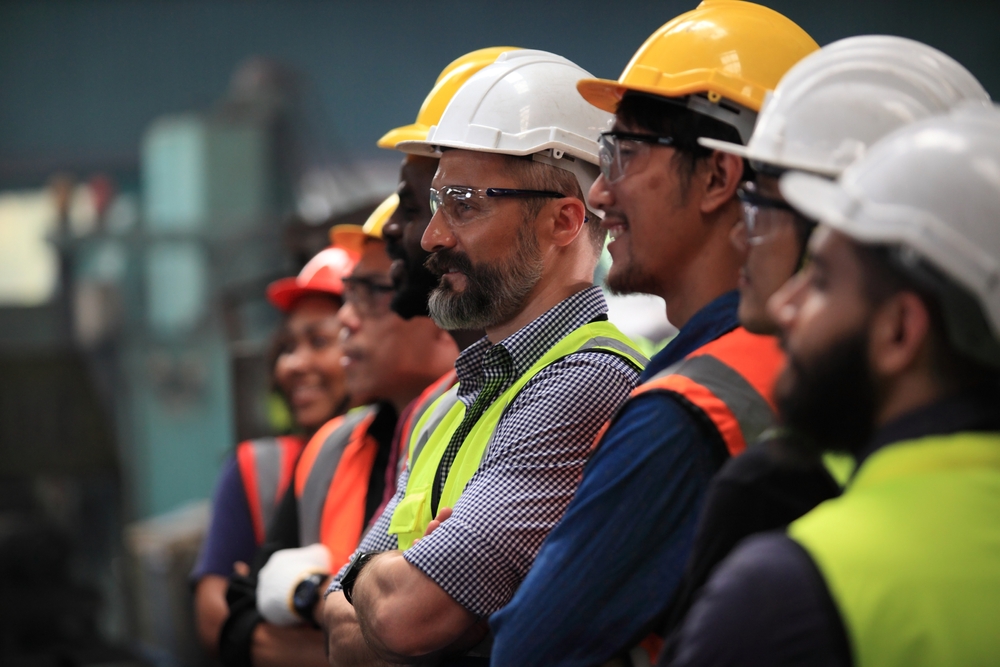An overwhelming majority (95%) of skilled trade professionals believe that artificial intelligence (AI) has a purpose in at least some day-to-day job functions, and 39% are hopeful that AI will spur industry growth and make the trades more appealing to the younger, tech-savvy workers.

That’s according to the National Fire Protection Association’s (NFPA) third annual industry survey, which polled over 300 professionals in the electrical, manufacturing, construction, engineering, architect/design, facility maintenance, compliance, fire service, and insurance/risk management fields during the NFPA 2025 Conference & Expo.
In the face of ongoing labor shortages driven by an aging workforce, in tandem with growing demand for skilled workers amid rapid infrastructure investment and technological advancement, the survey findings highlight how people across the skilled trades are viewing ongoing changes and where the industry is headed.
“The skilled trades are at a turning point: rising safety hazards, rapid technology adoption, and an unprecedented demand for training are reshaping how work gets done,” said Jim Pauley, president and CEO at NFPA. “Leaders must understand how these forces are affecting skilled professionals. Meeting workers where they are and responding to their needs with targeted technology, robust training, and strong professional support will be critical to sustaining the industry’s growth and resilience.”
Other key findings from the survey include:
AI and Digital Tools Gain Momentum in the Skilled Trades
- Sixty-four percent (64%) of respondents have noticed an improvement in workflows and collaboration among their teams since implementing digital tools.
- Fifty-seven percent (57%) of respondents use NFPA LiNK individually or within the organization, a 6% increase from 2024 findings.
- Thirty-one percent (31%) of respondents see AI as a tool to help skilled trade workers streamline tasks amid ongoing labor shortages.
- Twenty-five percent (25%) of respondents remain skeptical of AI’s purpose in the skilled trades, though many have seen a variety of benefits from the adoption of advanced technologies.
Training and Certifications Are Priorities, but Barriers Remain
The survey revealed that training remains top of mind for industry professionals. Seventy-eight percent (78%) of skilled workers participate in at least one NFPA training and development program a year; of this group, 43% participate once a quarter and 17% participate twice a year.
Despite the appetite for training, barriers remain. These include:
- Lack of time for participation (35%);
- High costs (30%);
- Lack of access to a qualified instructor (24%); and
- Challenges determining the right training opportunities (23%).
Notably, the prevalence of these challenges has decreased by an average of 26% year-over-year, indicating that more organizations are prioritizing training and development.
Certification programs tell a different story:
- Sixty percent (60%) of respondents held a certification from a professional organization, down from 74% in the 2024 survey.
- Yet, 62% said that certifications or professional credentials are a requirement in their organizations for hiring, promotion, or staff development purposes.
This potential disconnect suggests a need for stronger alignment between workforce goals and organizational expectations, particularly as certifications grow in importance for career advancement. As more organizations look at professional certifications as an indicator of employee performance, it’s critical for workers to consider pursuing certifications to ensure career growth and development, according to the NFPA.
Skilled Trade Workers See Value in Professional Memberships
Professional memberships can be an important part of any skilled trades career. Fifty-two percent (52%) of surveyed workers leverage NFPA membership offerings, citing numerous benefits of membership programs from NFPA or other organizations, including:
- Networking and collaboration with other industry professionals (66%);
- Continued education opportunities (61%);
- Access to technical support for questions on codes and standards (44%); and
- Career growth opportunities (34%).
The survey results suggest that the skilled trades are undergoing a quiet but important transformation—one that blends tradition with innovation for a tech-driven future. Leaders across the skilled trades have an opportunity to use new technologies, leverage training and development opportunities, and participate in professional memberships to modernize and address ongoing labor shortages. As a result, the NFPA suggested digital transformation is no longer optional for organizations committed to the industry’s development.
ALSO READ: 12 Facilities Management Certifications to Consider for 2025
